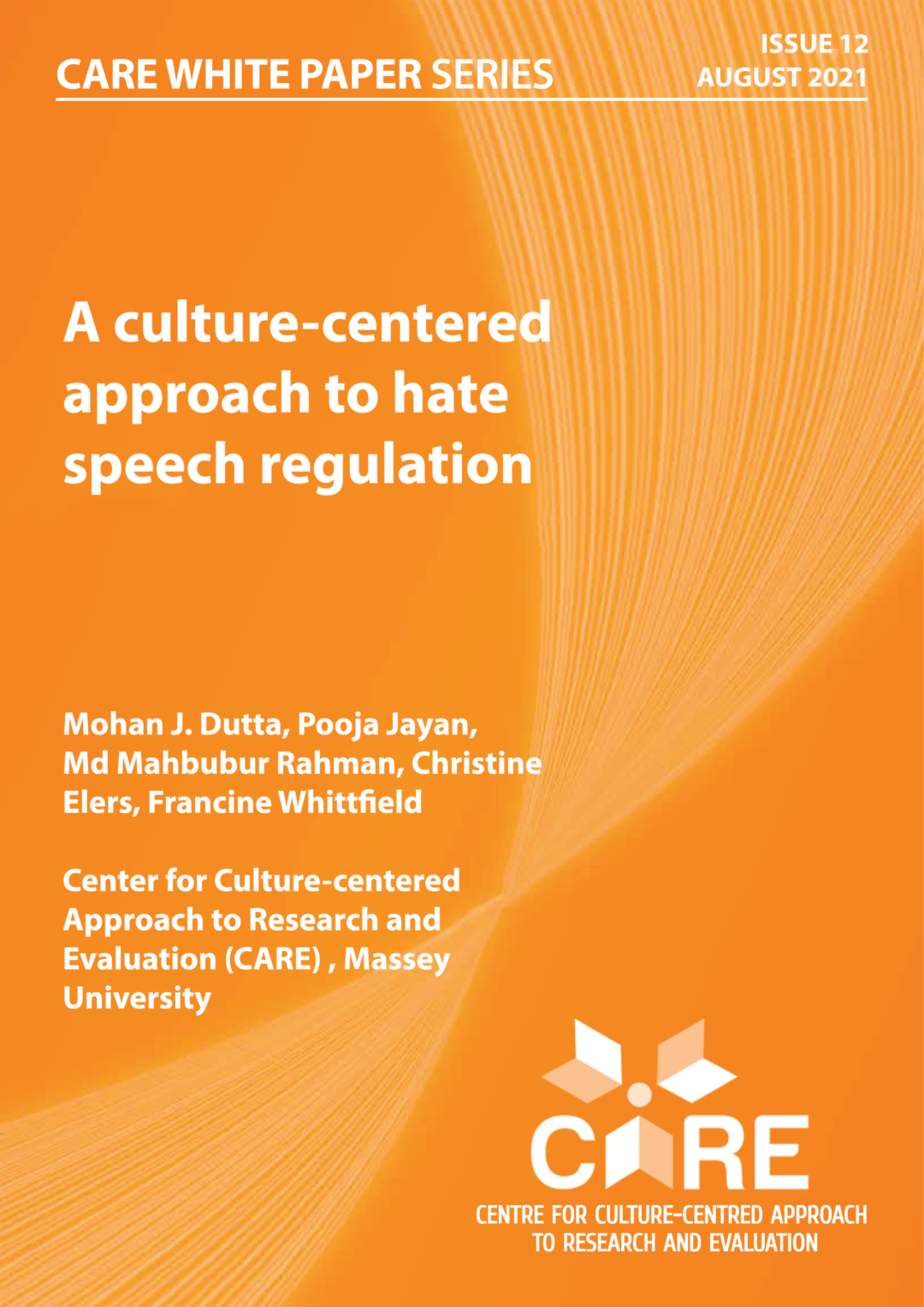by Mohan J. Dutta, Pooja Jayan, Md Mahbubur Rahman, Christine Elers, Francine Whittfield , CARE Massey University

We begin this response by noting that laws against incitement of hate are necessary in extreme situations. However, a culture-centered analysis suggests that laws against incitement are not effective in transforming cultures of intolerance and hate that are held up by powerful political and economic interests[1]. Those in places of power deploy hate to serve their political and economic gains. Simultaneously, we note that powerful political and economic interests use hate speech laws to silence dissent and erase articulations from the margins. As anti-racist academics and activists, collaborating with social justice activists, we have experienced and witnessed the silencing processes through manipulation of legal frameworks around hate speech. Our activist collaborators have been harassed and persecuted by authoritarian states under the guise of promoting racial and/or religious harmony[2]. It is vital to critically interrogate the individualization of hate in laws against incitement. Instead, structural transformations are needed in the form of policies that are explicitly anti-discriminatory, guarantee and support equality of vulnerable communities, and protect the fundamental human rights of vulnerable groups[3]. We propose a culture-centered policy framework to addressing hate speech that tackles the political economy of hate and builds communicative infrastructures for the voices of communities at the “margins of the margins.”[4]
[1] Saylor, C. (2014). The US Islamophobia network: Its funding and impact. Islamophobia Studies Journal, 2(1), 99-118; Bukar, A. A. (2020). The Political Economy of Hate Industry: Islamophobia in the Western Public Sphere. Islamophobia Studies Journal, 5(2), 152-174; Campbell, K. G. (2004). Freedom of speech, imagination, and political dissent: Culturally centering the free speech principle. University of Denver.
[2] Thanapal, S., & Dutta, M. J., (2019). Dismantling racism in Singapore: Resisting authoritarian repression. Interview. Palmerston North: Center for Culture-centered Approach to Research and Evaluation (CARE); Thanapal, S. (2020). The neo-colonized entity: Examining the ongoing significance of colonialism on free speech in Singapore. First Amendment Studies, 54(2), 225-235.
[3] George, C. (2016). Hate spin: The manufacture of religious offense and its threat to democracy. MIT Press.
[4] Dutta, M. J., Elers, C., & Jayan, P. (2020). Culture-centered processes of community organizing in COVID19 response: Notes from Kerala and Aotearoa New Zealand. Frontiers in Communication, 5, 62.
Dutta, M. J., Jayan, P., Rahman, M. M., & Elers, C. (2021, August). A culture-centered approach to hate speech regulation. CARE White Papers, 12. https://carecca.nz/2021/08/17/care-white-paper-issue-12-august-2021-a-culture-centered-approach-to-hate-speech-regulation/
